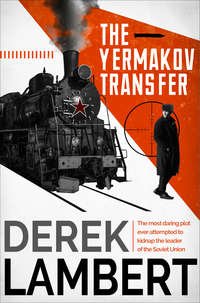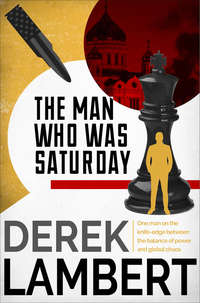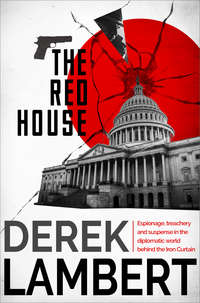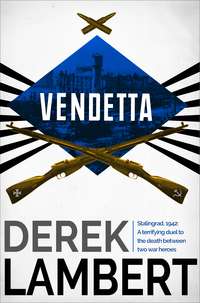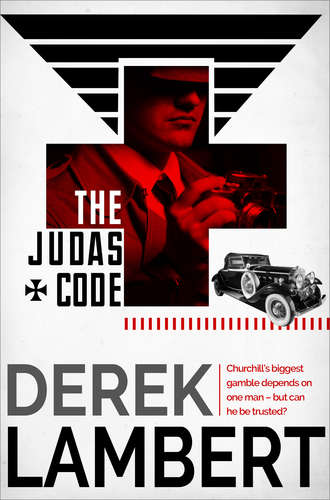
Полная версия
The Judas Code
What was certain was that he was already contemplating an awesome concept. What was equally certain was that he was enjoying a hearty meal – partridge, bacon, hot-buttered toast and marmalade.
He ate rapidly but fastidiously – his hands were remarkably small for such a bulky body – and as he put away the food he read the newspapers, his features a mixture of petulance and pugnacity, unrelieved by the boyish smile that so often disarmed his critics.
The only item that gave him any pleasure was the news, prominently displayed, that the Royal Navy had been mobilised. He considered it to be a halting step in the right direction; unfortunately it was belied by most of the other items.
The previous evening the Prime Minister, Neville Chamberlain, had broadcast to the nation: ‘How horrible, fantastic, incredible, it is that we should be digging trenches and trying on gas-masks here because of a quarrel in a far-away country’ – bracketing Czechoslovakia with the Arctic! – ‘between people of whom we know nothing …’
Dear God, the glib insularity of the man!
‘… I would not hesitate to pay even a third visit to Germany if I thought it would do any good … I am a man of peace to the depths of my soul.’
After making the broadcast, Chamberlain had received a letter from Hitler and there was no doubt that it was an invitation to appeasement. Would they never learn, these men of lofty resolve, that idealism could only survive on strong shoulders?
With a sigh Winston Churchill pushed aside his tray, climbed out of bed, put on a dressing gown and sauntered on to the lawns of Chartwell, his country manor, near the village of Westerham in Kent, to which he had escaped from his flat at Morpeth Mansions in London for a brief respite from the crisis.
War clouds were gathering over London, Berlin, Paris and Prague; but they weren’t in evidence in rural Kent. Bonfire smoke wreathed the seventy-nine acres of grounds; the trees were autumn red and gold; chrysanthemums still insisted it was summer despite the first frost on the grass.
He lit a cigar. The sole hint of war – and that only apparent to himself – was the foundations of the cottage he was building in which Clemmie and his four grown-up children could find tranquillity when it came.
As come it undoubtedly would. But not as most people seemed to think when the present negotiations over Czechoslovakia broke down. No, Chamberlain would return to Germany, a grovelling pact would be struck with Hitler, Mussolini and Daladier, and the Czechs would be sacrificed on the altar of compromise. It was ironic that those who had failed to heed his warnings about the Nazi threat now expected war immediately whereas he still gave twelve months or so.
But if Chamberlain does return with peace in his bag then watch out, Winston, because there’ll be no place in Britain for a warmonger.
He made his way to the foundations of the cottage and with a mason’s trowel scraped a few crusts of cement from the first row of bricks. Warmonger! His cross, unjustly borne, ever since … He supposed it went back to those dashing days in Cuba, India, the Sudan and South Africa when, as warrior or reporter, he had always breathed gunsmoke.
Then it hadn’t mattered too much; in fact his escape from captivity during the Boer War had helped him to gain his first seat in the Commons. In 1900. In two months he would be sixty-four. But age didn’t bother him because he didn’t heed it.
Stretching for a crumb of dried cement just out of his reach, he felt a warning nudge of pain in the shoulder he had dislocated when embarking from a troopship in Bombay in those young, fire-eating days. He dropped the trowel, threw away six inches of cigar and started back towards the red-bricked old mansion that he had bought in 1922 when the roofs leaked and weeds had occupied the grounds.
Like one of those weeds the warmonger epithet had taken root during the Great War when, as First Lord of the Admiralty, he had extended hostilities to Turkey. But despite the catastrophic Gallipoli Campaign, he still believed that his instincts had been correct; the back-door assault on the enemy should have shortened the war by a couple of years. What he had lacked had been support and loyalty.
And what no one realised, then or now, was that he only revelled in battle, as indeed he did, when his sights were set on peace. Did a true warmonger lay bricks? Or paint landscapes? Or build his own swimming pool?
When the second world war finally broke out, when he was recalled to the helm as he had no doubt he would be, then he would pursue peace more vigorously than ever. But this time his quarry wouldn’t be a butterfly that flitted capriciously between conflicts: it would be a lasting peace.
And to achieve that he would have to indulge in manoeuvres that would dwarf Gallipoli by comparison. He had no idea what those manoeuvres would entail – there had as yet been neither birth nor conception of any concrete plan. But he did know that if he divulged even a glimmering of his wondrous, horrendous vision then it would be stillborn. And he would be finished.
The public must never know.
At least not in his lifetime.
*
For several years Chartwell had been a Foreign Office in exile.
There, Churchill had conferred with his closest henchmen, Bob Boothby and two red-haired stalwarts, his son-in-law Duncan Sandys and Brendan Bracken.
There, energetically but impotently, he had drawn up the policies he would have pursued had Stanley Baldwin or his successor, Neville Chamberlain, given him office in the Government.
There, he had furiously denounced Hitler’s occupation of the Rhineland, Austria and now the Sudetenland territory of Czechoslovakia.
There, he had sounded the trumpets for King Edward VIII when he was forced to abdicate the throne because he was determined to wed the American-born divorcée Mrs. Wallis Simpson. Not only was he a warmonger, he was a defender of lost causes.
And it was to Chartwell that he repaired with Bracken when the Munich crisis was over. Chamberlain, fresh from his betrayal of Czechoslovakia, had waved his meaningless agreement with Hitler at the crowds outside Downing Street and told them: ‘I believe it is peace for our time.’
The First Lord of the Admiralty, Duff Cooper, had resigned in protest. Churchill had passionately mourned Munich in the Commons: ‘All is over. Silent, mournful, abandoned, Czechoslovakia recedes into the darkness … Do not suppose this is the end. This is only the beginning of the reckoning.’
As he had feared, his sentiments had been anathema in the euphoria that followed Chamberlain’s homecoming.
‘I wouldn’t mind so much,’ he told Bracken as he restlessly paced one of Chartwell’s reception rooms, ‘if Neville believed any of this eyewash himself. But he doesn’t. Even when he was waving at the crowds on his way back from Heston he told Halifax, “All this will be over in three months.”’
‘He believed it once,’ Bracken remarked. ‘Even you must give Chamberlain credit for that.’
‘This is the first time I have disputed his sincerity,’ Churchill said. ‘In the past I’ve always respected his idealism – however unwisely it was dispatched. He was the conscience of a nation still recovering from the haemorrhage of the war. Twenty years, that’s all it’s been, Brendan, twenty wasted years.’
Despite Churchill’s sombre mood Bracken grinned, running his hand through his crinkly, ginger hair, because it was typical of his mentor that he couldn’t resist salting a compliment. Wasted years. Perhaps so. But a little misplaced in the context.
Churchill poured himself a whisky and soda and continued to patrol the book-lined room littered with newspapers. ‘And I’ve never doubted his strength. He’s a tough old bird is Neville, and a wily one too, despite outward appearances.’ Bracken grinned again. ‘The toughness, stringiness if you like’ – Churchill permitted himself a smile – ‘is still there but the sincerity … I’m afraid it’s been dissipated, Brendan.’
‘I assume he’s only buying time.’
‘Then why doesn’t he come clean?’
‘In public? Come now, Winston, that would be an abuse of honesty. If he admitted he had dallied with the Führer just to give Britain the chance to re-arm, Hitler would march into the rest of Czechoslovakia tomorrow. But he has expressed his doubts to his confidants; and I don’t have to remind you, Winston, that you aren’t one of them.’
Churchill grunted and lit a cigar from a fresh consignment from John Rushbrook in New York.
Bracken, Irish-born newspaper publisher and M.P., regarded Churchill fondly from the depths of a sighing leather armchair. He had known him for years, from the time Churchill had moved to the Admiralty after his tempestuous reign at the Home Office. Like Churchill, Bracken enjoyed talking and liked to educate people. His favourite topic was Churchill, youthful adoration was behind him, mature understanding in its place.
He understood the melanchola, veiled from the public, that frequently afflicted Churchill, a legacy handed down from the Dukes of Marlborough but tempered, thanked God, by his mother’s American blood; he understood the flamboyance summoned to smother doubt, the bravado employed to mask fear. ‘You can’t be a hero without being a coward,’ Churchill had once told him.
He believed he knew Churchill better than anyone except Clementine. Not that he wasn’t bombastic, arrogant and impetuous; far from it; but what people didn’t comprehend was his sensitivity – Churchill made damn sure of that.
But what you could never quite cope with was his unpredictability. It erupted now as Churchill, thumbs in the waistcoat of his crumpled grey pinstripe, stared at a portrait of his grandfather, the 7th Duke.
‘What about Joe?’ he said.
‘Joe? Joe who?’ Bracken asked, bewildered.
‘Joe Stalin. I wonder how he views this grovelling policy of ours – if he’s got time to think in between his purges.’
‘I shouldn’t think he’s very pleased. He would like to see the capitalist powers fight each other to a standstill.’
Silence.
Somewhere a clock chimed. Bracken could hear the crackle of Churchill’s cigar as he rolled it between his fingers.
The silence continued. Nervously, Bracken cleared his throat.
Finally Churchill said: ‘That’s a very interesting remark, Brendan.’
But hardly an original one, Bracken thought.
‘Let’s put it to one side for a moment,’ Churchill said. ‘But we may return to it,’ as though they were in for a long session which, Bracken knew to his cost, could last until four am. ‘Don’t think for one second that Stalin, that wily old Georgian, is hoodwinked by Neville’s scrap of paper. He knows that Corporal Hitler is going to wage war and he’s got to decide whom to support. To put it more bluntly, who’s going to win, Germany or us. Who do you think he’ll put his money on, Brendan?’
Bracken thought about it. ‘Well,’ he said, giving his spectacles a polish, ‘he’s been chasing an anti-Hitler coalition for three years.’
‘As indeed he might,’ Churchill said, returning to his perusal of the 7th Duke. ‘In 1936 Hitler was bellowing that the Ukraine and even Siberia should be part of the lebensraum, Germany’s living space. But pray continue, Brendan.’
‘But then again he thinks that we’ve deliberately allowed Germany to re-arm so that she can fight Russia. He must interpret Munich as an inducement to the Nazis to further that aim. On one side he’s got the aggressor, on the other the betrayer. An unenviable choice, Winston.’
Churchill wheeled round, waving his cigar so vigorously that Bracken feared his suspect shoulder might pop out. ‘I’ll tell you what he’ll do first: he’ll sit on the barbed-wire fence and wait to see who looks like winning the war in Spain. It is, after all, a dress rehearsal for the next world war.’
‘Suppose the Fascists win – and that seems likely. It would be very strange to see a Bolshevik going over to the other side.’
Churchill gave a fleeting smile which reassured Bracken who had feared that he was on the brink of a deep depression. ‘I did it once,’ he said.
‘But this is a bit different. Communists siding with Fascists. It’s ridculous.’
‘History is littered with strange bedfellows.’
‘Not strange, grotesque. If Franco wins he’ll be expected to throw in his lot with Hitler. You seem to be suggesting that Stalin of all people will join him. A preposterous notion, if you don’t mind me saying so, Winston.’
‘I don’t mind in the slightest, my dear Brendan, because you are giving rein to assumption. I merely said that Stalin would observe which way the winds of war blow in Spain. If Franco wins – and I have little doubt that he will – then Hitler will be that much stronger. Another prospective Fascist ally instead of a Bolshevik foe in western Europe. Another Italy – although if you’ve got allies like Mussolini you don’t need enemies.’
Bracken said: ‘I’ve reined in my assumption and I still don’t understand. You don’t appear to have contradicted the proposition that Stalin would side with Hitler and Franco.’
‘Ah, then you haven’t reined hard enough. There will be no question of such an unholy triumvirate because Franco, another wily bird, won’t actively side with Hitler, he’ll sit on the barbed-wire fence, too. Do you know what I would do if I were Chamberlain?’
Bracken shook his head. It was, he decided, a gala night for unpredictability.
‘I’d promise Franco that I’d give him Gibraltar if he stayed neutral. Who knows, maybe one day I’ll be in a position to give that promise …’ Churchill sat down opposite Bracken and took a swig of his whisky and soda. ‘But I digress. What I’m saying is that Stalin will wait till the Fascists have thrashed the Reds in Spain, then he’ll throw in his lot with Hitler. You see, Brendan, it’s really the only option open to old Joe.’ Stalin, Bracken reflected, was five years younger than Churchill. ‘He knows that one day Hitler will turn on him and he’s got to delay that inevitable moment until Mother Russia has girded her loins to meet such an attack.’
‘And that will take a few years,’ Bracken remarked. ‘According to estimates here Stalin has purged upwards of 30,000 Red Army officers. Not only that but he’s got rid of nearly all of the Supreme Military Council. Do you know the total estimate of Stalin’s victims, killed or imprisoned?’
‘No,’ Churchill said irritably, ‘but you will tell me.’
‘Something like six million. And you know, of course, what he’s reputed to have said when one of his sons tried unsuccessfully to shoot himself …’ Bracken was beginning to enjoy himself.
‘An educated guess would be words to the effect that he couldn’t shoot straight.’
‘An inspired guess! And did you know—’
‘For God’s sake, Brendan,’ Churchill said, ‘let’s get on with the business at hand.’
They were interrupted by Clementine who came into the room to bid them goodnight, somehow managing to be both dignified and homely in a pink robe. Sometimes she reminded Bracken of a Society hostess, sometimes of Gracie Fields. But contradictions had been thrust upon her by marriage: she should by now have withdrawn into gracious patronage and yet here she was by the side of a man who in his sixties was talking about leading his country in a second world war. Small wonder that there were occasionally wry edges to her smile.
‘Goodnight, Brendan,’ she said, ‘please don’t get up,’ as Bracken sprang to his feet, and to her husband: ‘It’s nearly midnight dear, will you be much later?’ The question, Bracken suspected, was purely academic.
‘Not much longer,’ Churchill said, kissing her lightly. ‘You run along now.’ And when she had gone: ‘What a lucky devil I was, eh, Brendan? I was never much good at the niceties of courtship, you know, but Clemmie understood.’
As if she had any choice, Brendan thought.
Churchill regarded the smoking tip of his cigar. ‘She’s never liked these things, you know,’ and ground out the long stub as a gesture of penitence. ‘And now where were we?’
‘Stalin. You prophesied he would go in with Hitler.’
‘No doubt about it.’ Churchill gave himself another whisky and siphoned soda water into it. ‘Now let’s get that phrase of yours back off the shelf.’
‘What phrase was that?’
‘He, Stalin that is, would like to see the capitalist powers fight each other to a standstill. It made my hair curl, Brendan, what little there is left of it. Of course you’re absolutely right, that’s just what old Joe would like to happen.’
Patiently, Bracken waited for enlightenment.
Holding his glass of whisky in one hand, pausing to tap some of the books in the cases with one small, plump finger as though they contained the answers to the questions that had defied the sages, Churchill began to pace the room again. There was his own novel, Savrola, written in his youth; there was The Aftermath in which he had poured out his post-war hatred of the Bolsheviks. ‘It’s strange,’ he said, finger lingering on The Aftermath, but my fear – yes, fear, Brendan – of the Reds has always been greater than my fear of the Nazis. We shouldn’t have squeezed the Nazis so hard, Brendan, we should have left them a little pith.’
Still Bracken waited.
‘Supposing,’ Churchill said, turning to study Bracken’s reactions, ‘supposing we reversed the process to which you have just referred. Supposing we took steps to make sure that Russia and Germany fought each other to a standstill?’
Tentatively, Bracken said: ‘A formidable proposition, Winston,’ aware that he was being used as a sounding board.
Churchill got up steam. ‘I wonder if it could be done … why not … it has always been possible to manipulate great men … just kick them in their Achilles heel – conceit …’
‘But what about this pact you’re so sure they’re going to sign?’
‘It won’t fool either of them. Hitler intends to march through the steppes, Stalin knows it. It’s just a matter of buying time. Like Munich,’ he added, scowling.
The distant clock chimed again. A single note. Half an hour had passed since Clementine had taken herself to bed. It was 12.30 a.m.
Like Munich … That was the only truth, Bracken realised. He had been frog-marched into a debate about a war that hadn’t been declared, a Soviet-German Alliance that didn’t exist.
But Churchill had become an exultant prophet, his glass of whisky his crystal ball. ‘What we must do,’ he said, ‘is make the sands of time run with great alacrity.’
‘I’m afraid I don’t understand, Winston, you’re talking in riddles.’
Churchill’s words lost their ring. ‘No more you should, Brendan, no more you should. I’m not even sure that I do at this moment. But it will come, it will come.’
He sat down abruptly.
Then, voice sombre, he wound up the debate: ‘But I tell you this. Unless some stark and terrible measures are devised, this island of ours is doomed to be pillaged by the barbaric hordes of either the Nazis or the Bolsheviks.’
Watched by a stunned Bracken, he drained his crystal ball. ‘We have but one hope of survival and that is to make sure that these two arch-enemies of freedom fight each other to the death.’
Without warning he strode to the door. Turning, he said: ‘Come on, Brendan, there’s a good chap, you’re keeping me from my bed.’
PART TWO
CHAPTER THREE
By the second week of June 1940 much of Europe lay in ruins, the people dazed and beaten by Hitler’s Blitzkrieg. Poland, Denmark, Norway, Holland and Belgium had fallen and France was poised to throw in the Tricolour.
But in Lisbon you could have been forgiven for forgetting that there was a war on at all.
The sun shone; the boulevard cafés in the cobbled squares and wide avenues were crowded with customers, British and German among them, the broad, flat waters of the Tagus estuary were scattered with ships of many nations; the little yellow tramcars butting along their shining rails and climbing the steep hills were stuffed with cheerful, sweating passengers.
In the grand arenas of the Baixa, business in the banks was brisk, hotels were full, shops were relatively well-stocked. In the precipitous maze of the Alfama, women garlanded their leaning cottages with laundry, dogs slept in the alleyways and the hot air was greased with the smell of grilling sardines.
It was only on closer inspection that you realised that the Portuguese capital had not entirely escaped the war. There was a restlessness abroad in those pavement cafés; conversations were muted, money changed hands surreptitiously. And in the grand hotels, the Avenida Palace and the Aviz, the atmosphere was majestically clandestine.
The perpetrators of this atmosphere were mostly refugees but quite a few were spies. The refugees had flocked to neutral Portugal from the countries over-run by the Nazis, following in the footsteps of the Jews who had fled from Germany itself. Together they formed a cosmopolitan society that shivered with intrigue and suspicion.
At first they all had but one aim – to get out of Europe through Lisbon, the gateway to freedom. The rich usually managed it, liberally tipping the custodians of the city’s portals. Their poorer brethren, those more used to using the tradesmen’s entrance, didn’t escape so easily.
And it was they who were the most furtive. Selling jewellery, worthless bonds, secrets and their bodies if they were well nourished enough. Lying, cheating, cajoling, bribing. Anything to get a berth on a ship or, more ambitiously, on a New York-bound Clipper seaplane or an aircraft flying by night from Sintra airport. For preference a passage to the United States, traditional haven of desperate emigrants; second choices Britain, because, being at war, she was less hospitable to aliens, and South America, which was such a long way off and the sympathies of some of those far-off countries were suspect.
They wore incongruous clothes, these homeless fugitives. Long coats and cloaks, slouch-hats and absurd peaked caps, moth-eaten stoles and peasant blouses. Collectively they looked like extras from a dozen period movies. And the longer they stayed the more threadbare became their costumes, the more humble their homes.
The really tough persevered, in particular the Jews who were used to such privations. Others, dogged by ill-luck, double-crossed by swindlers, took to the hills or one of the shanty settlements on the outskirts of Lisbon where they could share their poverty without humiliation.
Their empty seats in the cafés were immediately filled, their rooms soon occupied by newcomers feverish with optimism. Some were luckier than others, in particular the British – many of them in transit, via Spain, from the South of France – who were accommodated outside the city. After all, Portugal was Britain’s oldest ally even if she had to placate the Germans – you didn’t upset Hitler, not if you were as small and unprepared as Portugal, you didn’t.
On June 13, the eve of the German occupation of Paris and a fine, dreamy day in Lisbon, the plight of the refugees seemed more stark than usual.
Or so it seemed to the tall young man in grey flannel trousers and white shirt striding loose-limbed along the Avenida da Liberdade, the Champs-Elysées of Lisbon, on his way to meet a girl in the Alfama.
It was feira, the Festival of St Anthony of Padua, Lisbon’s own saint, and the groups of dark-clad aliens seemed so remote from it; particularly the children with their hollowed eyes, pale skin and sharp bones. They should have been part of it – the processions, the feasts, the fireworks – because feira is a time for children (and lovers and drunks); instead they sat quietly in their ghetto groups in their peaked caps and too-long shorts, having learned already that insignificance is survival.
But today Josef Hoffman was determined not to be affected by the refugees. He had earned a day off from their suffering.
He had been in Lisbon for a year now, working with the Red Cross. At first his work had been coldly selective, weeding out the frauds – German agents mostly – and the rich from the deserving. With his Czech passport and his way with languages – he was already fluent in Portuguese – he was a natural agent provocateur.


